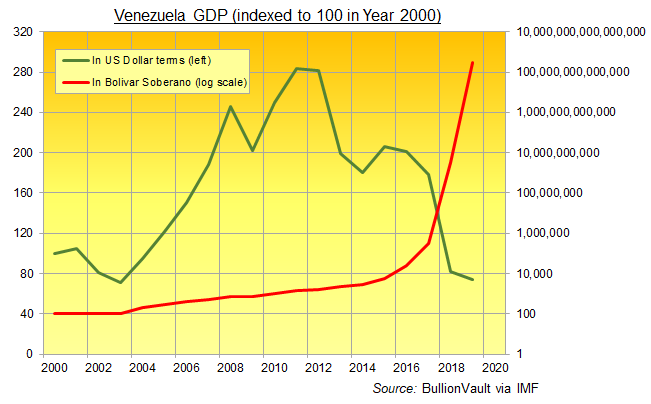Venezuela, Nazi Gold and BIS Account No.17

"On 19 May 1938, the Financial News and the Daily Telegraph reported that gold to the value of about £6,000,000 in the name of the Bank for International Settlements had been transferred [by the Bank of England] to the ownership of the German Reichsbank. As both papers pointed out, the transfer had taken place despite the fact that the government had moved to block all Czech assets held in the United Kingdom within 24 hours of the German invasion of Czechoslovakia on 15 March."The ensuing controversy became one of the major British news stories of the middle of 1939 [and] cast serious doubt over whether the Chamberlain government had truly changed its policy towards nazi aggression in the light of the invasion of Czechoslovakia, or whether it was using the secretive channels of finance to continue to appease Hitler."
"The BIS adopted a neutrality declaration excluding banking operations that might benefit one belligerent party to the detriment of another, but decided to maintain its banking services to assist central banks and to fulfil the Bank's own obligations so far as was consistent with neutrality. The Bank's precarious position – having on its Board central bank representatives of countries that were at war with one another as well as of neutral countries, and being cut off from direct communications with many of its members – gave rise to a number of difficult decisions. The most controversial of these dated from before the war, when, in March 1939, the BIS decided to honour an order received from the Czechoslovak National Bank to transfer part of its gold reserves held in a BIS account at the Bank of England in London to a German Reichsbank account. The transfer order had been issued days after German troops had occupied Prague, as it later transpired, under duress."
"It is clear that responsibility for the transfer of the gold rests with Montagu Norman, who was offered an opportunity to stop it with a word, and – with full knowledge of the ownership and destination of the gold – chose not to intervene."
"Norman was perfectly clear about what the BIS's instructions entailed and knowingly connived in the sale of plundered gold."
"The Third Reich both ransacked Europe's state gold reserves and extracted smaller, though significant, quantities of gold from private individuals, some of whom perished in the gas chambers. As a result, Germany was able to more than treble its pre-war holdings of gold, estimated at about $298.9 million in 1939 values, by adding some $614 million worth to its war chest. Of this impressive haul, approximately two-thirds is believed to have been sold to third parties – predominantly neutral central banks – by the time the war ended."









 Email us
Email us